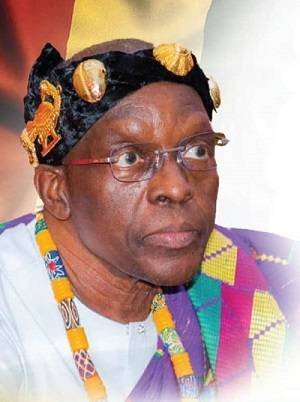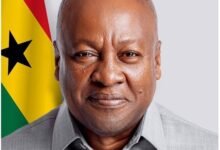Between Blyden and Bagbin: the case for an African Personality (1)

The Speaker of the Eighth Parliament of Ghana, Right Honourable Alban S.K. Bagbin, symbolises a radical transformation in the political leadership of the country. He is the first Speaker of the honourable House who belongs to the minority side of government. He has also dropped the long robe in favour of various traditional African attire, from the fugu to the agbada to the ceremonial adinkra and kente cloths worn by traditional Ghanaian chiefs, and it appears that he has by his leadership wooed his deputies as well as the clerks-at-the-table to follow suit.
By this act of defiance, Mr Bagbin has simply indicated a desire to give his high office as Speaker of Parliament, and by extension, the Parliament of Ghana a traditional Ghanaian character. Mr Bagbin said during his first address at the first Sitting of the Eighth Parliament that “the long gown, the headgear and bib” that his predecessors wore while in the Speaker’s chair “constitute the ceremonial dress of the Speaker. We inherited it from the British”. Mr Bagbin certainly is not in favour of maintaining a practice that, even the British, as he said, have long abandoned. The use of the robes, perhaps, constituted, as Ngugi Wa Thiong’o said, a “servile worship of what is dead”.
Vision
Beyond the colonial robes, the Speaker did not mince words in equivocating his vision of a parliament with a Ghanaian flavour:
“… this is the Parliament of Ghana”, he said. “It is a unique made-in-Ghana product, and we must showcase and market it to the world as a brand. We must create a unique set of values and norms that would give a unique character to our Parliament to set it apart from the colonial legacies of the British system’’. “My outfit today”, he added, “… is to set in motion this agenda”.
Mr Bagbin was careful to desist from crediting himself with any pioneering role in this sankofa crusade. According to him, the Speaker of the First Parliament of the First Republic of Ghana, Mr Joseph Richard Asiedu, appreciated and wore such traditional Ghanaian attire. In fact, the dominant dress code of members of the National Assembly of independent Ghana, according to him, was native costume.
Further into history, Mr Bagbin situated his crusade in the “propositions of the first President of Ghana, Dr Kwame Nkrumah and the other founding members of the First Republic”. Crediting Dr Nkrumah, who was among the leading pan-Africanists of his generation, with equivocating the projection of African culture and personality, was to be expected. It should, however, be reiterated that the roots of pan-Africanism go deeper than Nkrumah’s founding efforts. These roots are etched in the works of Edward Wilmot Blyden, the Carribean-Liberian who many consider the father of pan-Africanism. Several of the intellectuals who proposed pan Africanism in their works owed their ideological formulations to his teachings in the nineteenth century.
Mr Blyden was initially one of the leading proponents of the colonialisation of Africans by Caucasians. In 1888, Blyden, a pioneering educator, educational theorist and politician, published a pivotal collection of essays advocating, more or less, the indiscriminate political, intellectual and religious colonisation of Africans by Europeans. But by 1908, Blyden had changed his mind. He had made a complete turnaround.
In his writings thereafter, Blyden turned to articulating an in-depth understanding of the strengths and weaknesses of the African people. For Blyden, who was touted as the “father of pan- Africanism”, Western civilisation was intended to make the African a caricature of European society. As a result of such colonial influences, the situation of the African under colonial rule, according to him, had become one of chaos as he lived in strict psychological conflicts. The colonialists, Blyden added, had a clear view of what they were doing when they subverted African culture and projected their own.
The actual aim of colonialism, as Ngugi wrote, was to “control the wealth of the colonised’’, and the most effective weapon apart from their raids and conquests was the domination of the “mental universe” of the colonised. The colonialists were aware, as Ngugi intimates, that “to control a people’s culture is to control their tools of self – definition in relation to others”, hence their determined efforts at colonising this mental universe of Africans. The colonialists’ controlled this universe, of how the colonised Africans perceived themselves and their relationship with the world, through acculturation.
Against these odds, revival of the African personality, according to Blyden, is a solution to the distorted manhood of the African and a path to his future progress. Indeed, the uniqueness of African cultural identity stood as a more dominant aspect of Blyden’s philosophy, and following his lead, the African intellectuals of Nkrumah’s generation undertook forceful crusades against notions of black “inferiority” and “backwardness”.
By putting away the colonial robe, Mr Bagbin, has once again reiterated that critical need for a black revolution (a neo cultural renaissance) among Africans of this epoch. For this reason, his profound act of defiance of this lingering chain of subjugation and caricature ought to be commended highly and emulated boldly by other African political leaders and their peoples.
BY HAROLD WILSON HUBERT



